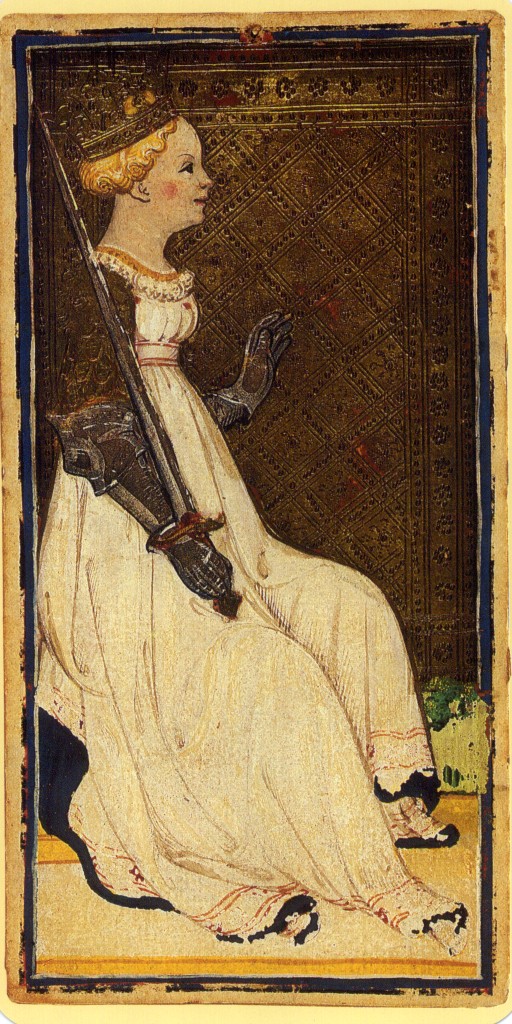Visconti Sforza Tarot Decks
One of the
oldest set of decks from 15th century from Italy that at least partly
exists today. Three most famous decks from the set are named after their former owners. The other two
names are
Visconti di Modrone pack (around 1441) and the Brambilla Tarocchi (around 1444).
The Visconti Sforza deck was originally commissioned by Filippo Maria Visconti,
Duke of Milan and later by his successor Francesco Sforza. The production of
this deck has long been attributed to Milanese court painter Bonifacio Bembo but
lately Francesco Zavattari has also become a "suspect". The deck is
decorated with precious metals and contains 22
Trump cards plus 56 standard playing cards. When this deck was
commissioned its purpose was to be a luxurious deck of playing cards,
Trionfirionfi (Trumps). Many hand painted decks produced in that time didn't
survive but Visconti Sforza decks as a true piece of art are saved in museums or
in the hands of passionate collectors. The cards in the deck portayed the life
of nobility in Milan at that time in addition to portaits of Visconti and Sforza
family members but nevertheless its imagery set the standards for the later Tarot
decks. It is noteworthy to say that according to the librarian Moakley;
Petrarch's "Triumphs" poem is a major influence behind the art in this deck.
Today, we don't have one particular Visconti Sforza tarot deck but the
set of about 15 that are in more or less preserved state. No deck has
survived complete. Three most preserved collections are Pierpont-Morgan
Bergamo, Cary-Yale and Brera-Brambilla.
- Cary-Yale (between 1442 and 1447), stored into Yale
University Library, given by Cary family it is also known as the s the Visconti di
Modrone set, 67 cards have survived. Some scholars speculate that this the
oldest deck. commissioned by Filippo Maria Visconti himself.
- Brera-Brambilla (1463), named after Giovanni Brambilla,
the former owner of the deck., today in Brera Gallery in Milan. Probably
produced by the Italian painter and miniaturist of the early-Renaissance period
Bonifacio Bembo for Francesco Sforza. 48 cards with only two trumps survived.

Queen of Swords (Pierpont-Morgan Bergamo)